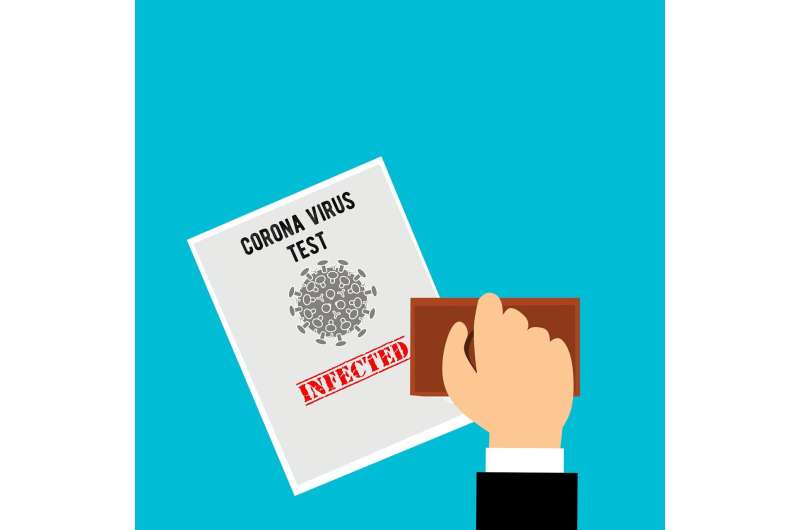Why children and teens with symptoms should get a COVID-19 test, even if you think it's just a cough

A Victorian teenager holidaying on the NSW South Coast has been diagnosed with COVID-19, NSW chief health officer Kerry Chant said on Wednesday.
The revelation follows reports senior students at Al-Taqwa College in Melbourne are now considered the main source of Victoria's second-biggest COVID-19 cluster.
These cases serve as a reminder that although children and teens are considered less likely than adults to catch and spread COVID-19, everyone with symptoms should get a test—including children and teens.
Children, teens and COVID-19 risk: what we know so far
In my field, pediatric infectious disease, new research is emerging all the time about how SARS-CoV-2 (the virus that causes COVID-19) affects children and teens. In short, the evidence so far says:
- children and teens can contract and spread the disease—but compared to adults, several studies suggest that they are less likely to.
- children and teens are much less likely to get severely unwell, be hospitalized or die compared to adults and older people.
- tragically, children and babies overseas have died of COVID-19, but compared with adults, this is much less common. Thankfully, it has not yet occurred in Australia.
The current thinking is that for most of Australia, the benefit of keeping schools open outweighs the risk. (In metropolitan Melbourne and Mitchell Shire, however, school holidays have been extended for all students except for those in year 11 and 12 or specialist schools.)
In Australia, the youngest COVID-19 death has been a person in their 40s. Less than 7% of all cases in Australia have so far have been recorded in children and teenagers. This proportion may rise, depending on the demographics in areas where community transmission is occurring.
What about older teens?
The risk of becoming unwell with COVID-19 increases with age. We know older teens are very different to young teens, both in growth and development but also in their activities—many of these activities put older teens at greater risk.
As Victoria's Chief Health Officer Brett Sutton has said: "They are older kids, they tend to have more transmission that is akin to adults if they're not doing the physical distancing appropriately."
And if teens do develop COVID-19, the disease can move incredibly quickly from person to person and may soon reach populations with much greater risk, such as older people.
That's why the very best strategy we have is to get tested.
Most children or teens with COVID-19, and indeed most people, will experience a mild illness that improves by itself. However, a small proportion of the community will become severely unwell. I'd be encouraging parents to remember that having a test is not just about the child; it's about the community, children, parents and grandparents.
Younger kids and the constant runny nose or cough
As we head into winter time, we're starting see more children and adults with common cough and cold viruses. For many parents of younger children, runny noses and coughs are a constant part of life during this time.
To these parents I would say: if it is a new cough, a new fever or sore throat, consider getting the child tested. This is particularly important for those living in places where community transmission is occurring, such as Victoria.
Some children, particularly through winter, will have an ongoing sniffle or cough and one infection will roll into the next. In this situation, the thing to watch for is a worsening of a fever or cough. If this happens, do not hesitate to get tested.
Testing is a key strategy
To sum it up, testing is one of the key strategies to contain the spread of COVID-19 in Australia. One needs only look to Victoria to see what can happen when flare-ups occur. Although some of the public health interventions may appear draconian, we have to make sure people who are infectious are separated from those who are susceptible.
If your child is showing symptoms, you might be tempted to think "it's just a cough"—and most of the time it will be just a cough. It's not that we think every child with a cough has got coronavirus, but early detection—along with other measures such as physical distancing, staying home if unwell and hand hygiene—is absolutely crucial in our response.
This article is republished from The Conversation under a Creative Commons license. Read the original article.![]()


















